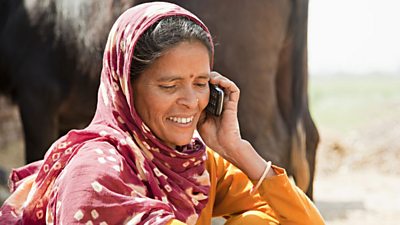Downloads
Publication date: February 2013
Authors: Yvonne MacPherson and Sara Chamberlain
Overview: This briefing focuses on how one of the greatest engines of innovation in the 21st century – the mobile phone – provides a high-impact solution to save lives. It identifies three aspects of mHealth – the delivery of healthcare information and services via mobile communication devices – that renders it such a potentially robust healthcare tool:
Reach. The first is its capacity to leverage existing – and quite basic – phones to provide life-saving information to people in difficult-to-reach, rural areas.
Design. The second is its capacity to tailor both the delivery and content of that information to the needs of poor, illiterate and marginalised populations.
Scale. The third is its capacity to operate at scale in a cost-effective, financially sustainable way.
Mobile telephony is not a panacea for all health challenges in the developing world. But there is enough experience – and the beginnings of an evidence base – to argue that mHealth deserves serious attention from any development actor seeking to improve global health.
Search the site
Authors: Yvonne MacPherson and Sara Chamberlain
Overview: This briefing focuses on how one of the greatest engines of innovation in the 21st century – the mobile phone – provides a high-impact solution to save lives. It identifies three aspects of mHealth – the delivery of healthcare information and services via mobile communication devices – that renders it such a potentially robust healthcare tool:
- Reach. The first is its capacity to leverage existing – and quite basic – phones to provide life-saving information to people in difficult-to-reach, rural areas.
- Design. The second is its capacity to tailor both the delivery and content of that information to the needs of poor, illiterate and marginalised populations.
- Scale. The third is its capacity to operate at scale in a cost-effective, financially sustainable way.
Mobile telephony is not a panacea for all health challenges in the developing world. But there is enough experience – and the beginnings of an evidence base – to argue that mHealth deserves serious attention from any development actor seeking to improve global health.
